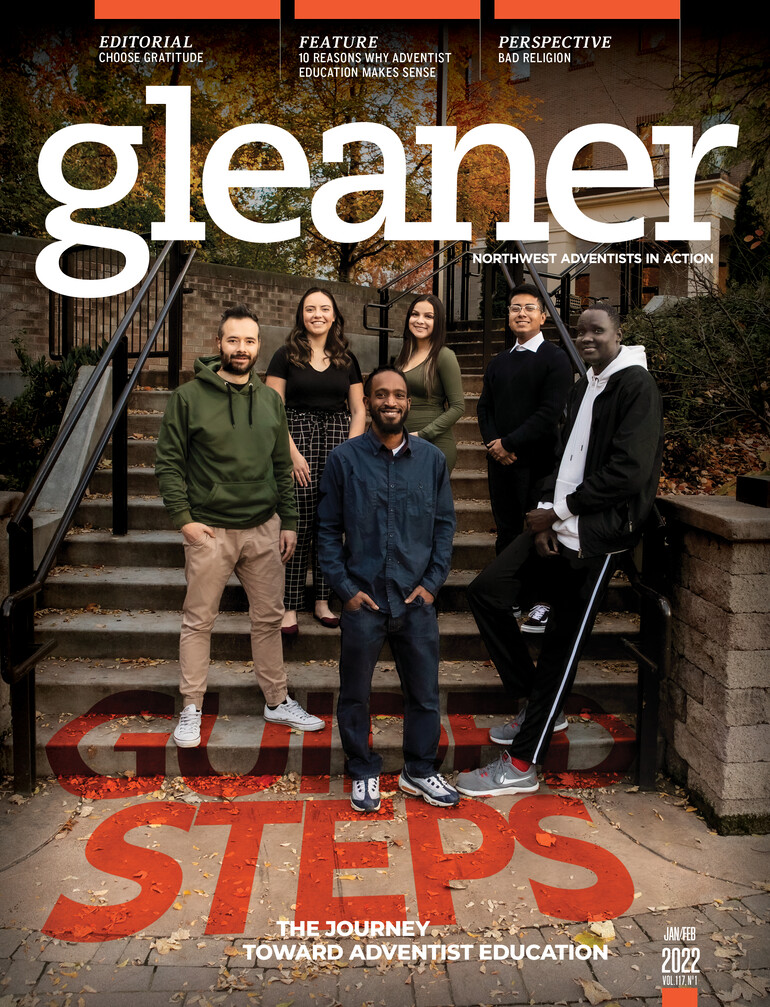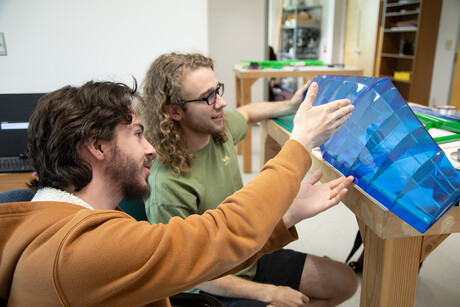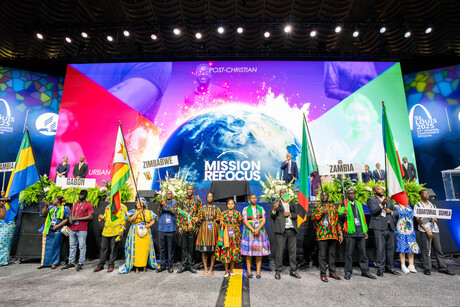For many years, I've done a review of my life on New Year's Day. Like many people, I’ve made resolutions to exercise more, lose weight, eat healthier, spend more time with my family, start a new hobby, read more books, etc. — I review the things that could contribute to better personal well-being. This year, I've decided to focus on being more grateful.
Why gratitude? I've been researching simple ways to create positive culture change in our post-modern and post-Christian world. I've discovered the simple practice of gratitude works. Not only does thankfulness affect positive culture change, but it also creates a greater sense of personal well-being. That's a pretty good bargain!
Jonah Goldberg, a writer for the National Review, believes “civil society” is declining because people are “losing respect for the conditions that allow human beings to flourish.” He defines civil society as a vast social ecosystem made up of families, schools, churches, associations, sports, business and local communities. He believes it “mediates life between the state and the individual.” In his opinion, it is a healthy society that will civilize people, not the state, that civilizes people. Many Christians would agree with Goldberg's perspectives.
A worldview is a set of basic beliefs through which we interpret life. As Christians, we have a worldview that tells a compelling story about a God of love, forgiveness, grace and service to others. But it's no longer a dominant worldview in America. America’s worldview is changing.
Current culture presents a worldview of tribalism, politics, partisanship, unhealthy use of power, etc. — all of which erode civil society. Today, social media magnifies tribalism. A tribal us-versus-them worldview, when intensified on social media, makes it easier to find like-minded, but virtual “friends,” a thousand miles away than to have a conversation with our next-door neighbor. The problem, Goldberg says, is that Americans no longer center their lives on “family, friendship, religion and civil society ... the only vessels of meaning, compatible with a free society.”
Scientific research suggests there is one remedy for our eroding civil society that costs very little. Professor Robert Emmons points out that “gratitude binds people together in relationships of reciprocity, and therefore is one of the building blocks of a civil and humane society.” The simple exercise of gratitude — a basic Biblical principle — has the power to affect a positive culture change.
Barry Brownstein, professor emeritus of economics and leadership at the University of Baltimore, tells a revealing story about gratitude in an essay featured on fee.org. “In 2017, a storm knocked out power to many local communities for almost a week. Propane for running generators and furnaces was in high demand. Speaking with the driver who delivered propane to our house, I learned of the long hours he was working to keep customers’ furnaces running. He gave me a glimpse into the human realities of emergency response. Up to that point, I had been preoccupied with the griping thoughts about how long our power and access to the internet had been out.”
Now, Brownstein looks for ways to express gratefulness and to connect to those who serve him.
In Brownstein’s essay, he quoted Emmons who said, “Gratefulness is the knowing awareness that we are the recipients of goodness. In gratitude, we remember the contributions that others have made for the sake of our well-being.” Unsurprisingly, he discovered that “grateful people experience higher levels of joy, enthusiasm, love, happiness and optimism.” His research also showed “the practice of gratitude as a discipline protects a person from the destructive impulses of envy, resentment, greed, anger and bitterness” — which tend to undermine social relationships.
When we experience gratitude, we experience increased levels of well-being. In a Scientific American study on which character traits produced well-being, Professor Scott Kaufman concluded that “the best predictor of well-being was gratitude.” All Biblical character traits produce positive well-being, but the best predictor was gratitude.
I appeal to you, in Christ, be more grateful in this new year. Be bold and express gratitude to all people who are serving you in any capacity to increase your well-being. This will build better relationships, which will build a better society. It will affect positive culture change and increase your personal well-being.
One practical way to do this is to express gratitude every day in a journal. If you do this in the morning, it will start your day on a positive note. Another way is to express gratitude to those serving you. Genuinely thank grocery checkers and shelf stockers, TSA workers, airport and airline workers. Express gratitude to postal workers and restaurant workers. You can also express gratitude to those you interact with regularly, like your neighbors and especially family. You will be amazed at the results.
I have a request. Would you please share some of those results with the Gleaner staff? We promise to share your positive experiences in every issue during 2022.
In closing, let me put this into practice: Thank YOU for the privilege of being a spiritual leader here in the Pacific Northwest.
I deeply appreciate the desire I see — by our diverse members across the NPUC — to make a difference and to be change agents through the power of the living Christ. Thank you for your sincere prayers for the anointing of the Holy Spirit on our constituency.
I’m grateful for the ministry done every week in our communities. Thank you, to those of you who prepare weekly Sabbath school lessons, from our adults to our children and youth. Thank you to those serving our young adults, and for working to bring their energy to our churches. Thank you, pastors, for your faithful, loving ministry. Thank you, teachers, for your faithful ministry to our children. (You'll find many things about Christian education to be grateful for in this issue.)
I can go on and on expressing gratitude to you, our friends and fellow ministers in Christ. And I will, throughout my year of gratitude. I hope you'll join me.











